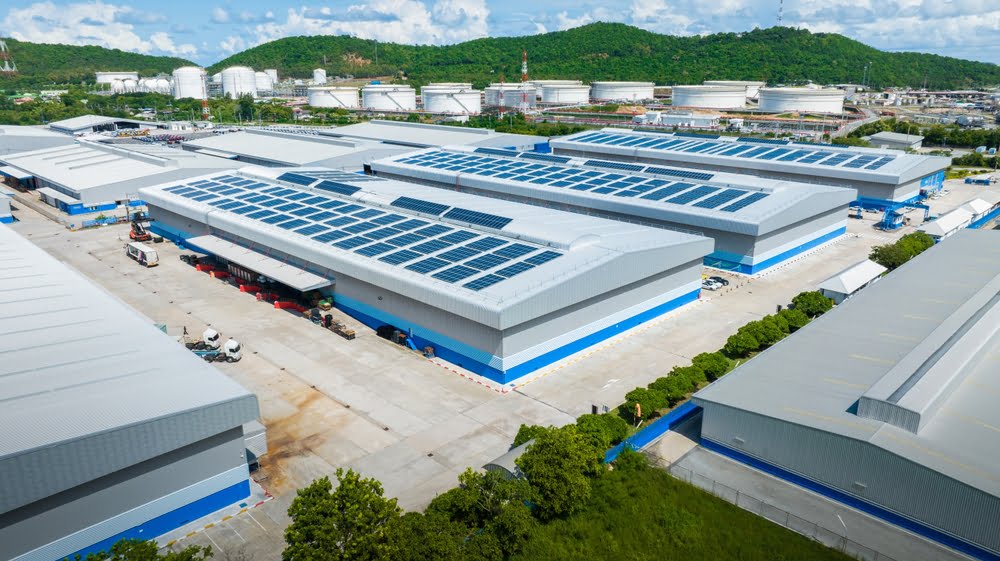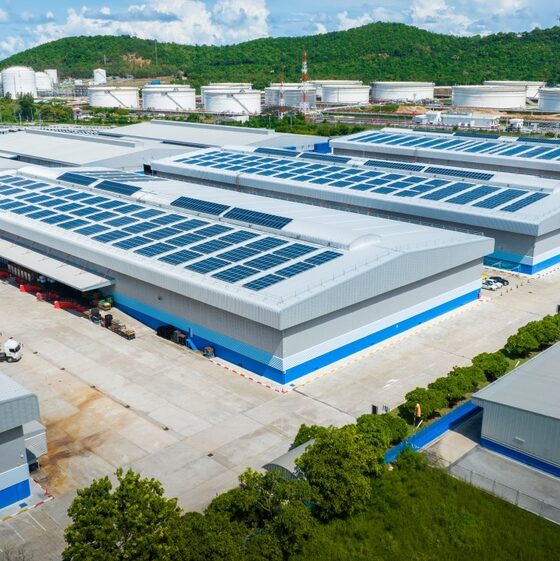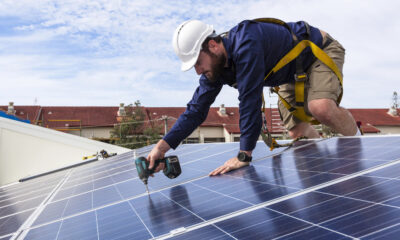

Energy
The Cost of Solar Panels in the US: Is It Worth the Investment?
Seattle Times published an article citing a new report from Germany that shows that climate change is creating a growing number of health risks. Solar power is becoming more important than ever, as fears of climate change continue to escalate.
One survey in September found that 50% of Americans plan to invest in solar energy in the future. However, many of them face challenge is that make adopting solar power more difficult.
Many people are skeptical that solar power is worth the cost. The truth is that there are a lot of things to take into consideration.
Is Solar Power Worth the Investment?
Solar power has emerged as an increasingly popular source of renewable energy in the United States, and for good reason. With solar panels, homeowners can harness the power of the sun to produce their electricity and reduce their reliance on traditional grid power.
Despite the clear benefits of solar energy, however, many homeowners are hesitant to invest, with concerns about the upfront costs. In this article, we’ll take a closer look at installing solar panels in the US and whether they’re worth the investment.
Understanding the Cost of Solar Panels
The cost of solar panels for your home can vary widely depending on a range of factors, including the size of the system, the quality of the equipment, and the location of the installation.
According to EnergySage, the average cost of a 6-kilowatt (kW) solar panel system in the US is between $12,000 and $18,000 before incentives. However, the cost can be significantly higher or lower depending on the specifics of the installation.
It’s important to note that while the upfront cost of solar panels may seem high, the long-term cost savings can be significant. With a solar panel system, homeowners can significantly reduce or even eliminate their monthly electricity bill, and in some cases, can even earn money by selling excess energy back to the grid through programs like net metering.
Federal and State Incentives for Solar Panels
To further incentivize homeowners to invest in solar energy, there are a range of federal and state incentives available that can significantly reduce the cost of solar panel installation. These incentives can include tax credits, rebates, and other financial incentives that can make solar power a more financially attractive option.
At the federal level, homeowners who install solar panels can take advantage of the Solar Investment Tax Credit (ITC). This tax credit allows homeowners to deduct up to 30% of the cost of solar panel installation from their federal taxes. This scheme has recently been extended so more homeowners, who are considering solar, can take advantage of this incentive.
Calculating the Return on Investment
When considering the cost of solar panels, it’s essential to think about the long-term return on investment. While the upfront cost of solar panel installation may be high, the long-term savings can be significant. According to EnergySage, the average solar panel system pays for itself in around 8 years, after which homeowners can enjoy significant savings on their electricity bills.
To calculate the return on investment for a solar panel system, homeowners should consider the upfront cost of installation, the savings on their monthly electricity bill, and any applicable federal or state incentives. It’s also essential to consider the value that solar panels can add to a home. Homes with solar panels installed typically sell for more than homes without them, making solar energy an excellent investment for homeowners who are considering selling their homes in the future.
however, it is important to make sure that you know how to use solar panels correctly when estimating your ROI. We have a guide on getting the most from them here.
Factors to Consider When Investing in Solar Panels
While the financial benefits of solar energy are clear, there are a range of factors that homeowners should consider when deciding whether to invest in solar panels. Some of the most important factors to consider include:
- Location: Solar panels work best in areas with plenty of sunlight, so homeowners should consider their location when deciding whether to invest in solar energy. Homes in sunny areas like California or Arizona may see greater returns on their investment than homes in less sunny areas.
- Upfront cost: While the long-term savings of solar energy can be significant, homeowners should be prepared to make an upfront investment in their solar panel system. However, with federal and state incentives available, the cost of solar panel installation is more affordable than ever before.
- Quality of equipment: The quality of the solar panels and other equipment used in the installation can have a significant impact on the long-term performance and durability of the system. Homeowners should look for high-quality equipment that is built to last, even in challenging weather conditions.
- Maintenance requirements: Solar panels require very little maintenance, but homeowners should be prepared to periodically clean the panels and make any necessary repairs to ensure optimal performance.
- Home value: Homes with solar panels installed typically sell for more than homes without solar panels, making solar energy an excellent investment for homeowners who are considering selling their homes in the future.
Making the Decision
Ultimately, the decision to invest in solar energy will depend on a range of factors, including the location of the home, the upfront cost of installation, and the long-term savings that solar energy can provide. With careful consideration and research, homeowners can make an informed decision about whether solar energy is worth the investment for their homes.
For many homeowners, the benefits of solar energy far outweigh the upfront cost. Solar energy provides a clean, renewable source of power that can significantly reduce or even eliminate monthly electricity bills. With federal and state incentives available, the cost of solar panel installation is more affordable than ever before. And with solar energy systems typically paying for themselves in around 8 years, the long-term savings can be significant.
If you’re considering investing in solar energy for your home, it’s important to do your research and work with a reputable solar panel installer. By carefully considering the factors outlined above and making an informed decision, homeowners can enjoy the many benefits of solar energy for years to come.






























